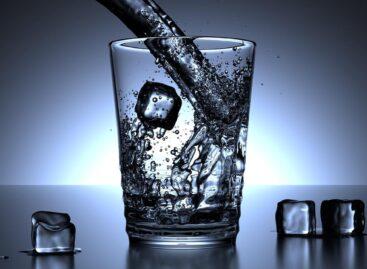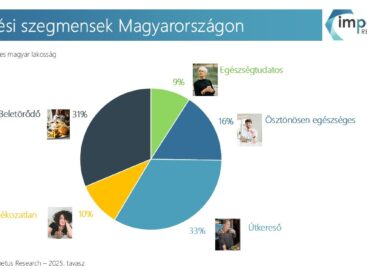Two out of three Hungarian adults are at risk of calcium deficiency, even though the solution could not be more natural
One of the most important minerals in our body is often underestimated, even though it is essential for maintaining the health of bones, teeth and muscles. Our body cannot produce calcium, so we have to supplement it from external sources. Since a significant part of the Hungarian population suffers from a calcium deficiency, Zsuzsanna Szűcs, president of the National Association of Hungarian Dietitians, not only draws attention to the fact that the lack of the mineral can lead to serious health problems, but also to the natural ways in which we can ensure calcium replacement in our bodies.

The importance of calcium in everyday life
Calcium is the most abundant element in our body, accounting for 1.5-2 percent of our total weight. It is mainly stored in the bones and is essential for the normal growth, development and strength of bones and teeth. In addition, it plays a role in many biological functions, such as muscle function, the transmission of nerve signals, blood clotting, the functioning of the immune system, and is also responsible for maintaining the appropriate pH value of our body.
Since calcium is essential for the optimal functioning of our body, it is essential that its concentration is always appropriate. Our body is not able to produce it by itself, so we have to supplement the recommended 950 mg of calcium per day on average for adults from external sources – but, for example, in adolescence, a higher amount is needed. If we do not get enough calcium, our body begins to extract it from the bone structure in order to be able to maintain proper cell function. The president of the National Association of Hungarian Dietitians points out that almost two-thirds of the adult population in Hungary1, 58 percent of men over 25 years of age, while 61 percent of women suffer from calcium deficiency. In the case of the younger age group, we cannot speak of much better rates either, 42 percent of 1-3-year-olds, 32 percent of 4-10-year-olds, and 34 percent of 11-18-year-olds have a low calcium intake, while the strength of bones, and thus the prevention of osteoporosis, begins in childhood .
Related news
Cold drink, hot consequences: iced refreshments can cause heart rhythm disturbances
It may sound bizarre at first, but it’s scientifically proven:…
Read more >How much should you drink in summer? – recommendation from the National Association of Hungarian Dietitians
Due to the hot summer days and increased physical exertion,…
Read more >A third of the population is still looking for ways to eat healthier, and only one in four Hungarians eats consciously
Nutrition is not only the foundation of proper bodily functions,…
Read more >Related news
GKI analysis: Why do Hungarian households live more poorly than anyone else in the EU?
Imagine that the residents of every EU country shop in…
Read more >KSH: industrial producer prices decreased by 0.7 percent in May 2025 compared to the previous month, and increased by an average of 6.9 percent compared to a year earlier
In May 2025, industrial producer prices were 6.9 percent higher…
Read more >Consumption drives the economy
According to the latest forecast by the Balance Institute, the…
Read more >






